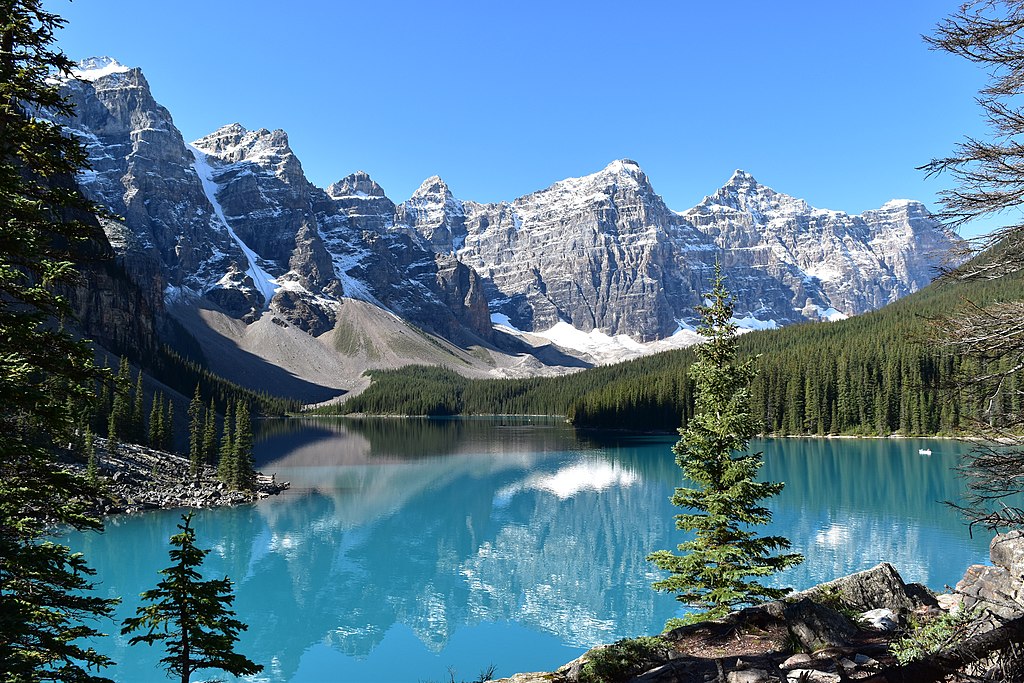Geography is the Science of the Earth!
Geography includes the study of places and the relationships between people and their environments. Geographers explore both the physical properties of Earth’s surface and the human societies spread across it. They also examine how human culture interacts with the natural environment and the way that locations and places can have an impact on people. Geography seeks to understand where things are found, why they are there, and how they develop and change over time.
Geography is often times called the “mother of all sciences” because geography is one of the earliest known scientific disciplines that date back to the original Homo-sapiens who migrated out of eastern Africa, into Europe, Asia, and beyond. In fact, some would argue that spatial awareness and early mapping were more significant to the development and migration of humans out of Africa than language. There is no single, linear or historic pathway through the cultural development of geography because the discipline is inherently human. Humans have always had a need and desire to explore their surroundings, expand their influence and sometimes dominance over new lands.
The first person to use the word γεωγραφία “Greek for earth description” was Eratosthenes (276–194 BC).
The inventor of the Geographic Information System was Canadian Roger Tomlinson and Canada continues to be a leader in the development and use of the technology.
Physical Geography
Physical geography is the study of Earth’s seasons, climate, atmosphere, soil, streams, landforms, and oceans.
Human Geography
Human geography is the study of the distribution of networks of people and cultures on Earth’s surface.
Geography students are skilled in:
| Problem Solving | Computer Mapping | Inquiry Methods |
| Decision Making | Statistical Analysis | Literary Research |
| Impact Analysis | Field Research | Writing Reports |
| Balancing Viewpoints | Spatial Awareness | Teamwork |
Career Opportunities:
Some jobs make direct use of geographical knowledge such as those in tourism, town planning, environmental management, location analysis, earth sciences, cartography, agriculture, information technology, business, and teaching. Transferable skills that Geography fosters are also an asset in law, journalism, international business, real estate, economics and politics.
Courses and Curriculum Documents
CGC1DI, CGC1DF, CGC1PI Issues in Canadian Geography
- This course examines interrelationships within and between Canada’s natural and human systems and how these systems interconnect with those in other parts of the world. Students will explore environmental, economic, and social geographic issues relating to topics such as transportation options, energy choices, and urban development. Students will apply the concepts of geographic thinking and the geographic inquiry process, including spatial technologies, to investigate various geographic issues and to develop possible approaches for making Canada a more sustainable place in which to live.
CGT3OI: Introduction to Spatial Technologies
- This course enables students to develop practical spatial computer science skills and investigate related career opportunities. Students will develop their ability to use geographic information systems (GIS), global positioning systems (GPS), and remote sensing technologies. They will apply their geography knowledge and skills on student developed projects by conducting fieldwork, collecting and organizing data, and analysing spatial images such as maps and aerial photographs. Throughout the course students will develop their own ideas into projects.
CGG3OI: Travel and Tourism
- This course focuses on issues related to travel and tourism within and between various regions of the world. The focus in Travel and Tourism is exploring tourist destinations such as Canada, Europe, Asia, Africa, Australia, Brazil and the Caribbean. This course looks at the characteristics of these regions and examines the tourism industry and the impact it has on the region and their people. Economic, environmental and social impacts are analyzed. Students will learn valuable travel tips such as how to plan vacations and will also learn practical ways to save time and money.
CGO4MI
- This course provides a foundation for students who are considering a career involving computer-based technologies, science, math or the environment. Students will use geographic information systems (GIS), global positioning systems (GPS), and remote sensing technologies in solving problems. This is a project based course where students develop their ideas into projects that will analyse and propose solutions to real-life issues such as using mathematical algorithms to predict future events such as forest fires or determining potential damage from a future hurricane. Other projects may include appropriate locations for community services, or potential conservation and preservation areas. This course will help you broaden the development of your critical thinking skills which will be beneficial to any postsecondary program.
CGR4E: Living in a Sustainable World
- Environment and Resource Management examines the impact of human activities on the natural environment and emphasizes responsible resource management, mainly in the context of the local environment. Students will learn about ecosystem structures and processes, the ecological impact of human activities, and sustainable resource management, and will develop practical solutions to environmental and resource management issues.
CGW4UI World Issues
- Canadian and World Issues (CGU 4UI) is often called “World Issues” for short because the focus of the course is to look at major world issues facing Canadians and people worldwide. Some global topics include: population impacts, human rights, poverty, sweatshops/child labour, aid and trade, resource use, availability of food, political conflicts, terrorism etc. Where do Canadians fit in this interdependent and interconnected world? What is our role in these issues? Are we part of the problem or part of the solution? This course will help to broaden your understanding of these issues while developing your critical thinking skills which will be beneficial to any postsecondary program.
Please read course descriptions under title Canadian and World Studies
Gr 9 & 10 Canadian and World Studies curriculum document
Gr 11 & 12 Canadian and World Studies curriculum document
+
Student FAQs
Parent FAQs
Department Members
-
- Mr. Brooks
- Ms. Joseph
- Mr. Menhennet
- Mr. Piche
- Mr. Stewart




